• Introduction
• Why Do Newborns Hiccup?
• How Long Do Baby Hiccups Last?
• Can You Put a Baby Down While Hiccups?
• How To Get Rid of Baby Hiccups?
• How To Stop Baby Hiccups in Breastfed Babies?
• How To Stop Baby Hiccups in Bottle-fed Babies?
• Preventing Baby Hiccups: Safe and Effective Strategies:
• Key Takeaways
• FAQS
• Message From SuperBottoms
For adults, hiccups can be annoying. Having water, holding our breath, distracting ourselves – we try every trick in the book to get them to stop. Although hiccups in babies are not harmful in most cases and last hardly for a few minutes, they can be as irritating as they are for grown-ups. This SuperBottoms article will help you understand hiccups and tips on how to stop baby hiccups if they occur.
Why Do Babies Hiccup?
The hiccups start in babies while they are still inside their mother's womb. While no one can tell why newborns get hiccups or if just one thing triggers them, they are spasms of a newborn's still-developing diaphragm.
Gulping milk too fast, swallowing air, or overfeeding can trigger newborn hiccups. Sometimes, a sudden change in their stomach temperature, having something cold after something warm, or vice versa, can also cause hiccups in newborns.
How Long Do Baby Hiccups Last?
Until they start semi-solids or solids, newborn babies can experience frequent hiccups many times a day, and each episode can last up to 10 minutes. As long as your baby shows no signs of distress or discomfort, there is nothing to worry about. However, if the hiccups last longer or your baby seems uncomfortable, reach out to your baby's paediatrician to understand the root cause of the hiccup episode and how to get it to stop.
Can You Put a Baby Down While Hiccups?
Hiccups are nothing but spasms of the diaphragm; thus, it is not dangerous or harmful to put them on their back while having hiccups, but it might make them uncomfortable. Keeping them in your arms upright is better, as hiccups can also lead to throwing up or vomiting. If this is the case for newborn hiccups after feeding your baby or throwing up while lying down, it can get messy, and the spit or milk can also enter their nose. Thus, holding them upright and comforting them through the hiccup episode is best.
How To Get Rid of Baby Hiccups?
Watching your little one in discomfort is not incredible, and you might wonder how to stop baby hiccups. Here are some tricks that work for many parents:
1. Take a break, rub their back, and burp – If your baby has hiccups while breastfeeding, consider taking a break from feeding and burping it. Burping your baby is essential even during the feeding, and not just at the end, and this can help eliminate the chances of painful gas and uncomfortable baby hiccups after feeding.
2. Offer a breast – Suckling motions can help relax your baby's diaphragm spasms; thus, if the hiccups occur outside of feeding time, comforting them with a breast can help them get rid of them.
3. Change your baby's position – This might not guarantee that your baby will stop hiccupping, but it works in a few cases. Changing your baby's position can help them relax and stop the hiccups.
4. Let them stop on their own – Sometimes, the best approach is to let it pass. A newborn baby hiccup is usually nothing to worry about; within 8 – 10 minutes, they leave alone.
How To Stop Baby Hiccups After Feeding In Breastfed Babies?
• Burp the baby more frequently, even while feeding to avoid baby hiccups after breastfeeding.
• Switch the breast and give them a break if fast feeding or overfeeding triggers hiccups.
• If, in your observation, swallowing air and latching seems to be the issue and triggers baby hiccups after breastfeeding, speak to a lactation consultant and try to figure out a better latch and position for breastfeeding.
How To Stop Baby Hiccups After Feeding In Bottle-fed Babies?
• To prevent bottle-fed babies from having newborn baby hiccup, measures must be taken to minimise air intake during feeding and facilitate burping afterwards.
• Positioning the bottle to prevent air swallowing and burping more frequently can help alleviate hiccups.
• After feeding, keeping the baby upright, gently rubbing their back, and using soothing rocking motions can further help stop hiccups.
• These simple techniques reduce discomfort and promote comfort for bottle-fed babies experiencing baby hiccups after feeding.
Important Tip: Before feeding your baby, ensure you have a SuperBottoms Waterproof Cloth Bib ready. These bibs are designed to catch spills and drools effectively, protecting your baby's clothing from stains and wetness.
|
Limited Offers Ending Sooner - BUY NOW Now or never offers live on the SuperBottoms website. Take advantage of the never-before Good Value for Money on our offer page! Stock up on the bestselling UNO diapers, accessories & other popular SuperBottoms baby and mom products now available in deals and discounts. HURRY, the Deals are Live till stocks last! |
Preventing Baby Hiccups: Safe and Effective Strategies:
To prevent baby hiccups, it's crucial to avoid specific actions and adopt proactive measures that promote comfort and reduce the likelihood of hiccups occurring in the first place.
What Not to Do: Avoid attempting remedies such as startling or scaring the baby, holding their breath, or placing a wet cloth over their head, as these can be dangerous for infants. Additionally, refrain from offering water to babies under six months old who have not started solids or semi-solids, as it can pose risks.
Preventive Measures:
1. Adjust Feeding Time: Offer breast or bottle before your baby becomes extremely hungry to prevent overfeeding or feeding too quickly, which can lead to hiccups.
2. Mid-Feed Burping: Incorporate frequent mid-feed burping sessions to release trapped air and reduce the likelihood of hiccups.
3. Anti-Colic Bottle Design: If bottle-feeding, opt for anti-colic bottle designs that minimise air swallowing and gas, thereby reducing the occurrence of hiccups.
4. Ensure Proper Latch: Ensure your baby's latch on your breast is perfect to promote efficient feeding and minimise air intake during breastfeeding sessions.
5. Clothing: Keep your baby warm during clothing changes, especially if the room is cool. Use a soft, comfortable cloth or blanket to cover your baby while changing clothes or diapers to prevent them from getting chilled. You can use SuperBottoms Dry Feel Swaddle Wrap to keep your baby comfortable.
By following these safe and effective strategies, you can proactively prevent baby hiccups and provide your little one with a more comfortable and hiccup-free experience.
Key Takeaways:
1. Experiencing hiccups several times daily is normal for newborn babies, and you have nothing to worry about. However, you should check with your paediatrician if newborn baby hiccup is accompanied by other symptoms such as difficulty breathing, vomiting, or discomfort.
2. Several gentle techniques can help alleviate your baby's hiccups. These include offering them a pacifier, gently rubbing or patting their back, giving them a small amount of water to drink, or distracting them with gentle rocking or movement.
3. Baby hiccups tend to decrease in frequency and intensity as infants age, and their digestive systems mature. Most babies outgrow frequent hiccups from six months to one year.
FAQs:
Why Do Babies Hiccup?
Ans. Baby hiccups are commonly caused by the immaturity of the baby's digestive system, rapid feeding, swallowing air while feeding, or sudden temperature changes.
Are baby hiccups typical?
Ans. Yes, baby hiccups are normal and usually harmless. They are common in infants, especially during the first few months of life.
How long do baby hiccups last?
Ans. Baby hiccups typically last for a few minutes to an hour. In most cases, they resolve on their own without any intervention.
Do hiccups bother babies?
Ans. Hiccups may cause slight discomfort for some babies, but they are generally not painful or harmful. Most babies do not seem bothered by their hiccups and continue their everyday activities.
MESSAGE FROM SUPERBOTTOMS
Hola, New Moms and Dads! We at SuperBottoms ensure you have the best and safest products for your babies, no matter what corner of India or the world you are in. SuperBottoms is appropriate for your baby's sensitive skin throughout their Cloth Diapers journey, in any season, and also offers Padded Underwear for kids. If you reside in Canada, Kuwait, the United States, Qatar, Hawaii, Bahrain, Armenia, the United Arab Emirates, or the Philippines, SuperBottoms is an essential product for you and your child.
Reference Links
1. https://www.medicalnewstoday.com/articles/321932
2. https://www.healthline.com/health/childrens-health/newborn-hiccups






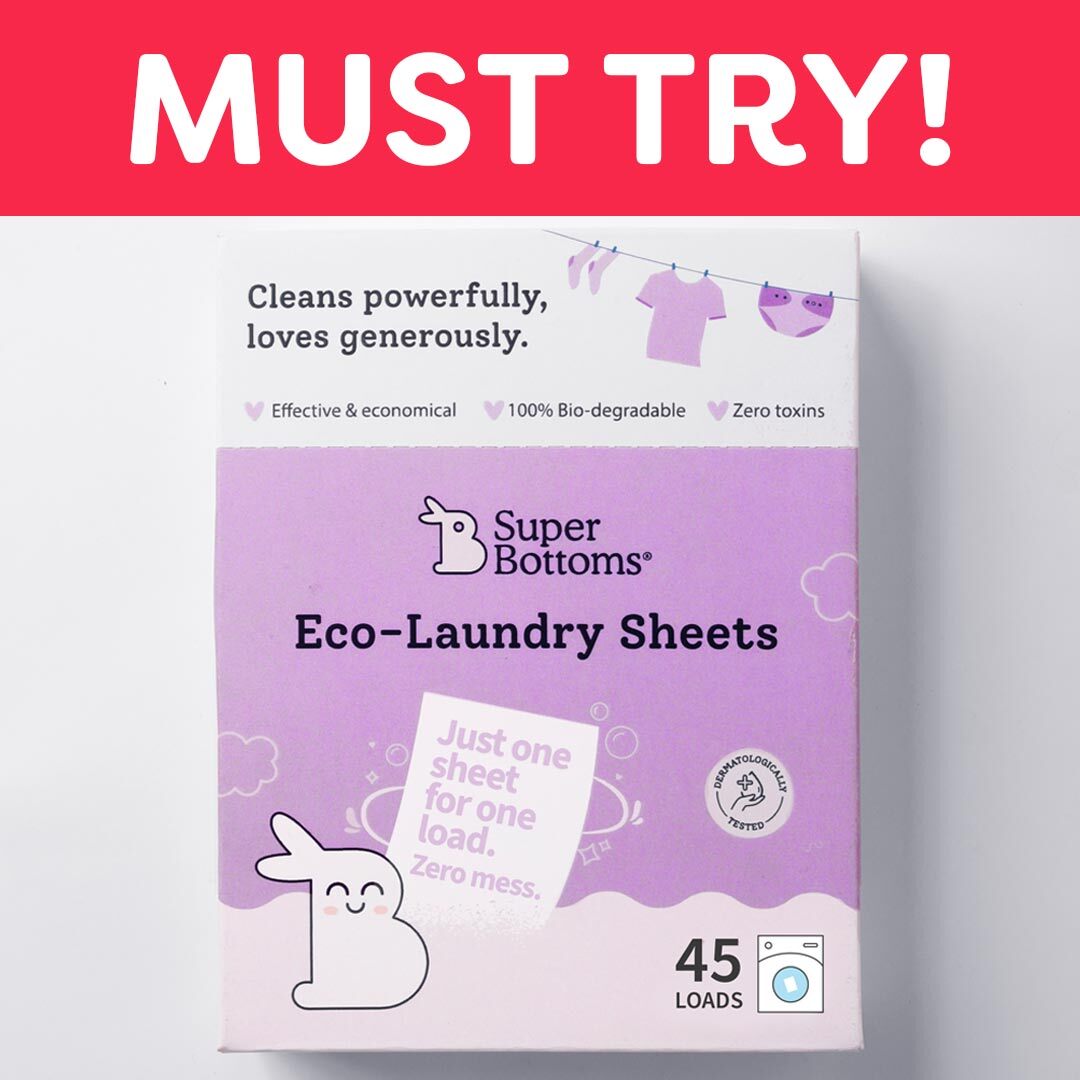
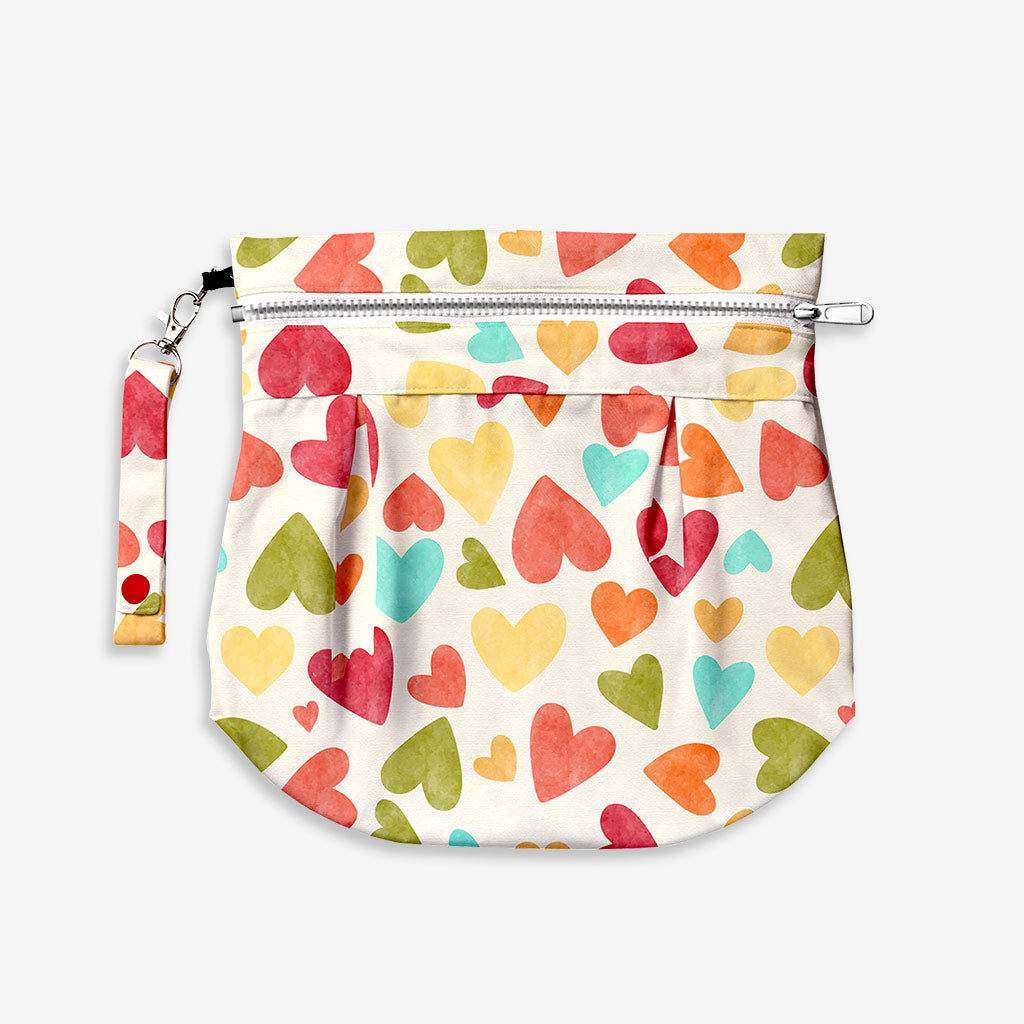
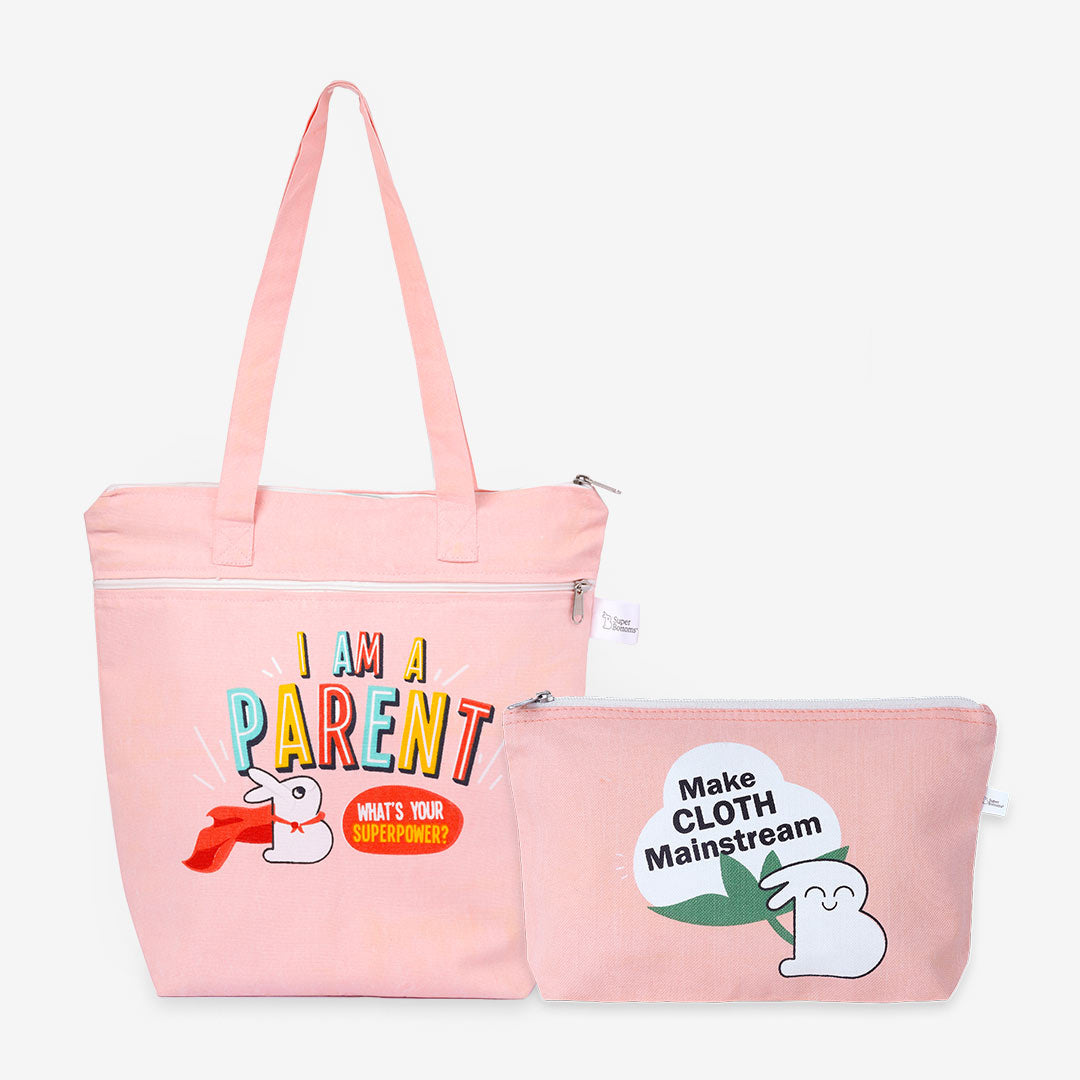
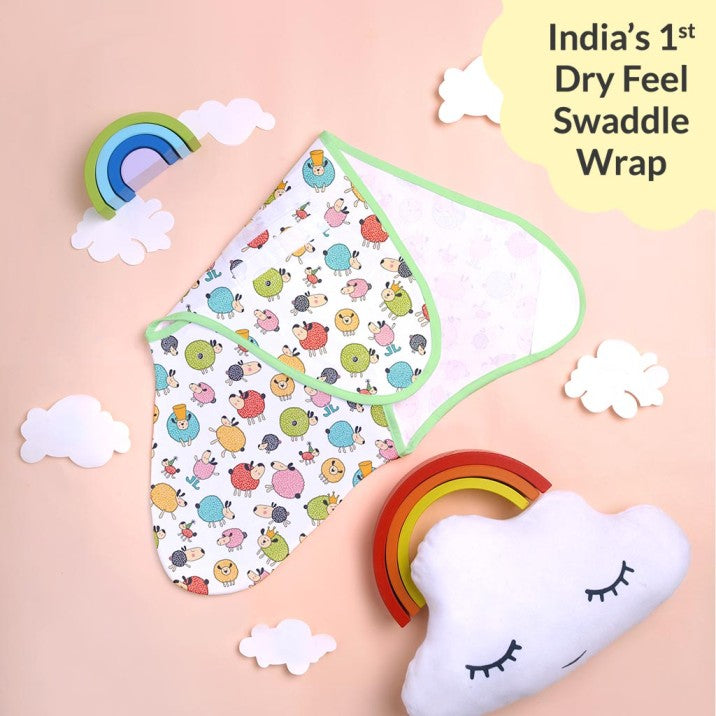
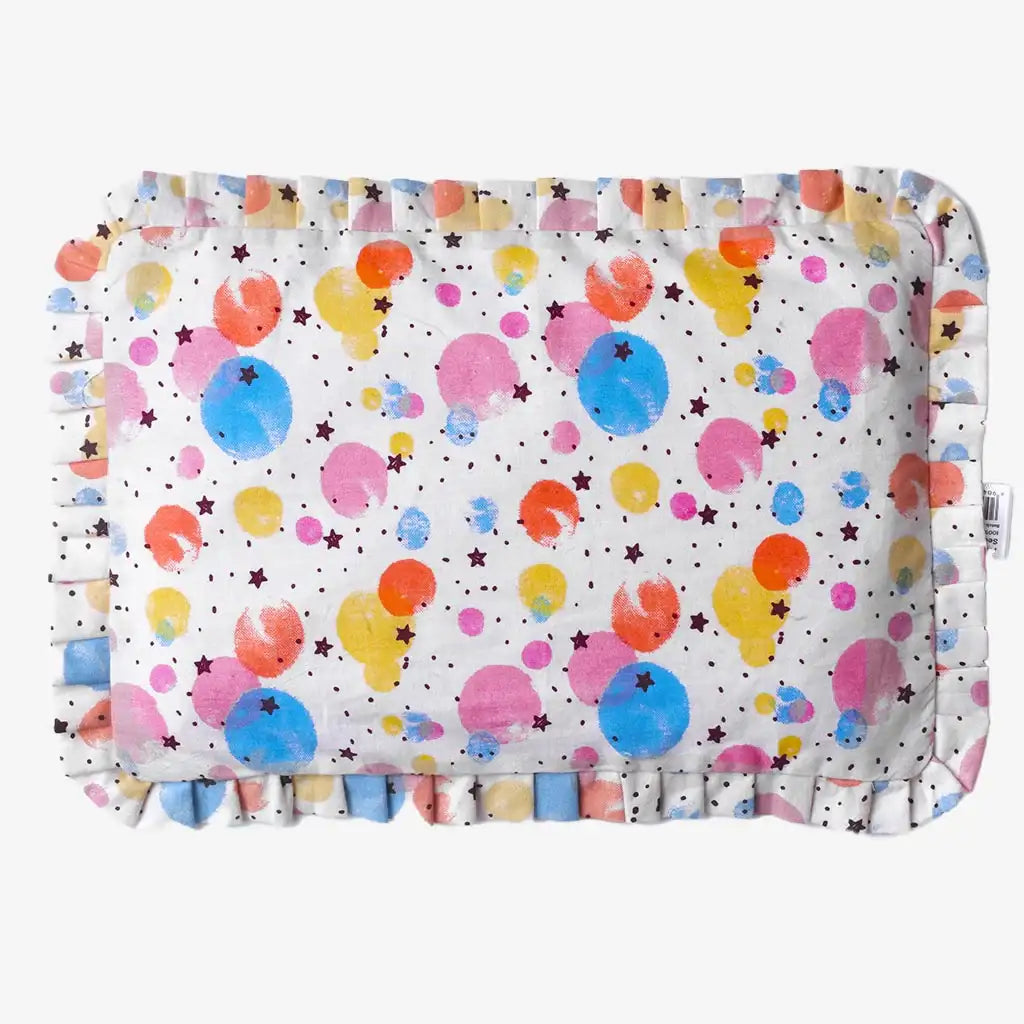
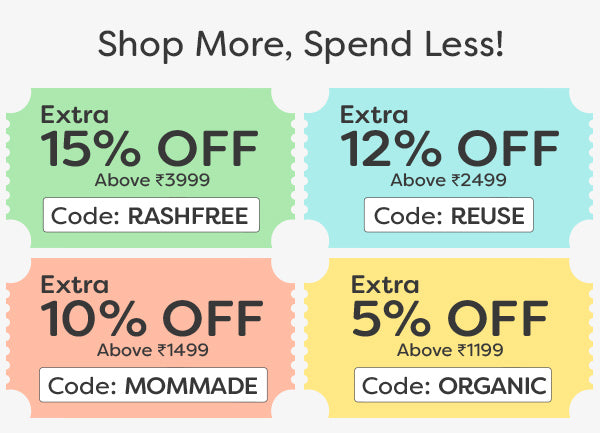
Wow
Get the 10% Discount on Cart
(Min Order Value 1500/-)
GRAB10
Leave a comment